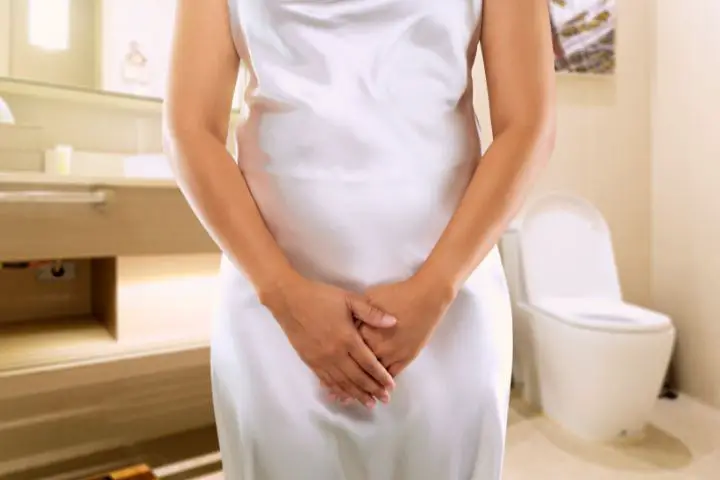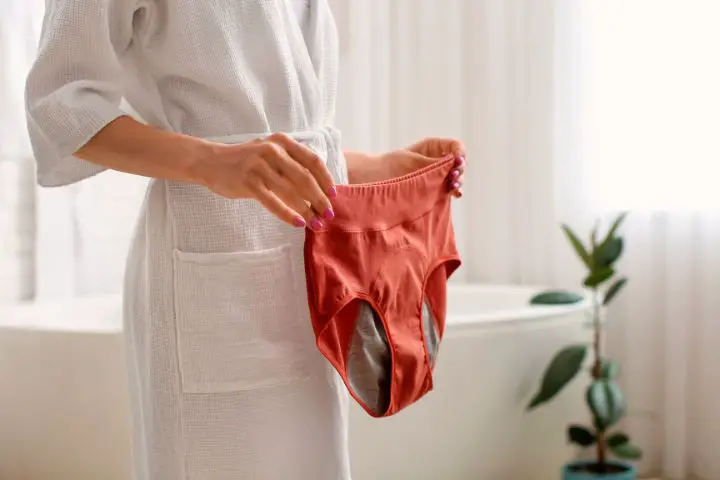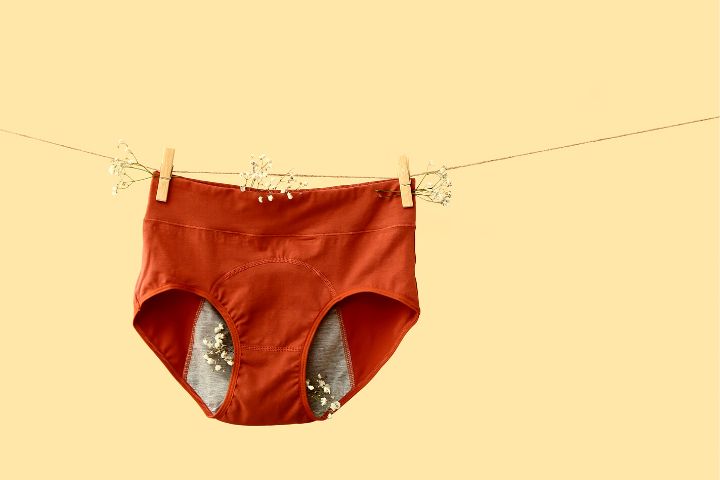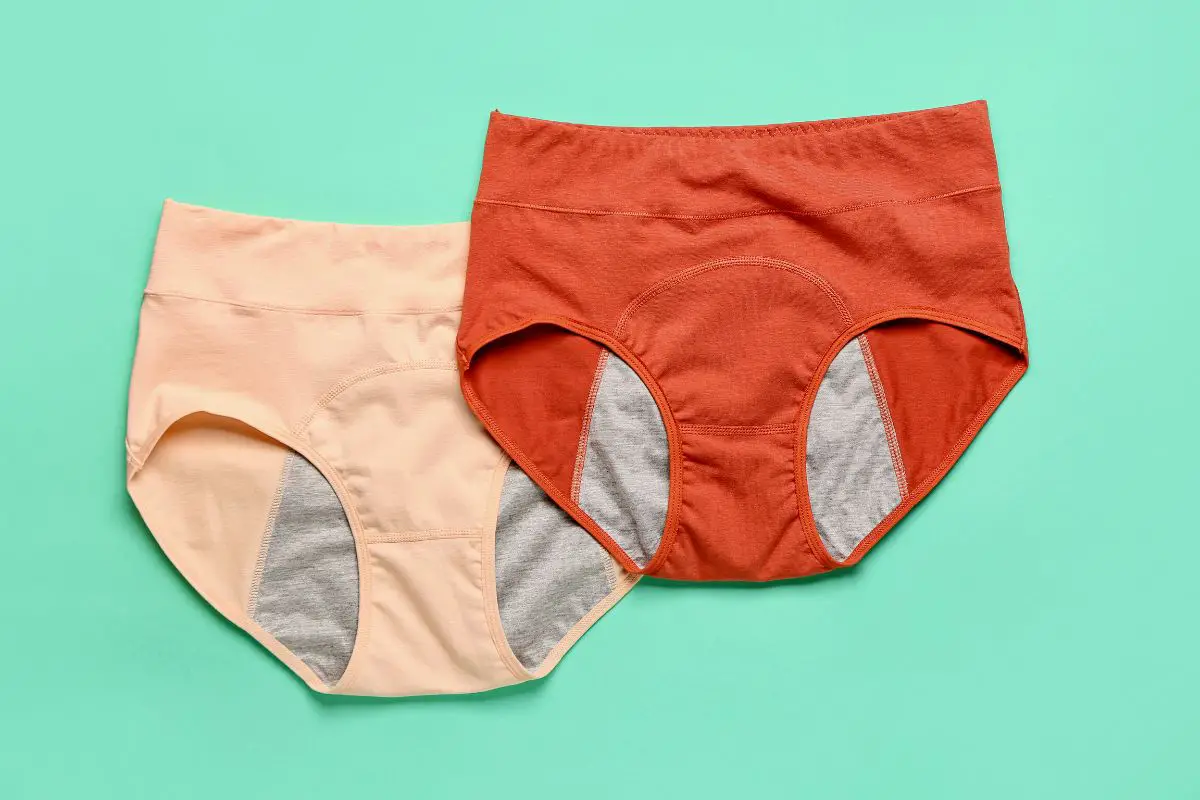Is Period Underwear Good for Incontinence? Uhm, Pretty Much Yes, But…!
Non-invasive, eco-friendly, and sexy. Ever thought we could describe a menzie product like this? Enter the very best period underwear!
They have a nifty layer to soak up your flow and another layer to stop it from reaching your clothes. So, it’s safe to assume that it can also be used for a leaky bladder?
Well, we’ll have to explore this a little further! Let’s get into the science of period underwear and if it’s good for incontinence.
In short, period underwear is a great absorbent tool and can help address leakages, but they are not a ‘cure’. In fact, it is important to highlight that incontinence may be treatable and a definite cure may be possible.
What is Urinary Incontinence?
Urinary incontinence is the loss of bladder control and is a common but embarrassing problem. Despite popular belief, incontinence does not only affect older adults! A leaky bladder can be caused by childbirth, pregnancy, or pressure on the bladder.
According to a survey, one in four women over 18 years have a leaky bladder.
The good news is incontinence is mostly treatable and period underwear (just like any other absorbent solution) should just be considered a tool to help with the problem, rather than a cure for incontinence itself.
We highly recommend anyone with incontinence problems to seek medical help that can lead to permanent solutions.
There are 5 types of incontinence:

- Stress incontinence- When you put pressure on your bladder by sneezing, laughing, exercising, or lifting something heavy. It can also be caused by menopause.
- Overflow incontinence- There is frequent or constant dribbling or urine because the bladder doesn’t empty completely.
- Urge incontinence- You get a sudden urge to pee followed by a loss of urine. Sometimes, it’s too much that you can’t get to the toilet in time.
- Functional incontinence- When you have a physical or mental problem that prevents you from getting to the toilet in time.
- Mixed incontinence- You may have a combination of the above types. Most often, it’s a combination of stress and urge incontinence.
Incontinence is more common in women than men. This is because of pregnancy, childbirth, and menopause. These events in a woman’s life put a strain on the pelvic floor muscles, which leads to leakage problems.
Is Period Underwear the Answer for Incontinence?
Swopping your cotton undies to the luxurious feel of period panties may be the answer you’re looking for. It all comes down to what period panties are made of, literally!
Period panties are made of at least three layers. The layer closest to the skin is a knitted layer that draws moisture away from the body. Usually, it has some kind of finish on it which makes it repellent to water, but it also has channels that let the fluid move away from the body.
Then comes the middle layer, which is super absorbent. This material is able to hold on to the fluid. The outer layer does not let any water pass through, so there are no stains on your clothes.

These layers may sound suffocating, but they’re very breathable! Incontinence is already very uncomfortable, so breathable layers are a must.
Depending on the brand of period underwear you opt for, your panties can be made of bamboo, cotton, or synthetic fibers. If period underwear can survive swimming, then incontinence is no match!
What About the Smell?
Incontinence gives you the anxiety that you may be smelling foul. This is a feeling that you don’t want, especially if you’re in public. Then, it feels like the whole world is looking at you.
Since the scent of your period does not go through period panties, urine wouldn’t either.
Period panties have an antimicrobial agent in their layers. This agent kills off bacteria and fungi, which is the cause of the smell. When the flow is released, the agent is released simultaneously, killing the bacteria and keeping you smelling fresh!
Another reason why I like period panties is that it prevents an odor from forming at all instead of simply masking the smell with perfume.
Is Period Underwear Better Than Incontinence Pads?
In my opinion, period underwear is for the win!
Period panties are much more discreet than wearing a pad or adult diaper, as there’s little to no bulk. It looks like normal underwear. Anyway, wearing incontinence pads for a long time can make your skin sore, as the materials are too rough for down there.

The underwear is very body-friendly, as it is made from softer materials that feel good against your body. Apart from this, they are also better for the environment than pads. Incontinence pads must be disposed of after a few hours, contributing to the ever-growing landfill.
Period underwear, however, can last for years before it loses effectiveness. In this way, you are helping the environment and being easy on your pocket!
What Can I Do About Incontinence?
If you are suffering from incontinence, it is important to seek medical help! Period underwear or any other absorbent device should just be a temporary solution. Incontinence, in most cases, is treatable and can be addressed.
Period underwear is a definite protection device for incontinence and can help you go about your day with ease. You can also implement some home remedies to help with your overactive bladder. This will benefit your overall health and self-esteem!
Kegel Exercises to Strengthen the Pelvic Floor
Kegel exercises are done to flex the muscles that you use to help prevent going to the toilet. When you consult any Google search, this is usually at the top of the remedy list!
Kegels are good to do in the early stages of incontinence and can be done if you are pregnant or just gave birth. It will strengthen your pelvic floor muscles. A physical therapist can advise you on how to do them and how often.
You will see an improvement in your leaky bladder after 12 weeks of continuous exercise. You must continue to keep getting the benefits, though!
Shed Some Pounds

Keeping fit and healthily losing weight is a very important factor when trying to reduce how many times you go to the toilet. Excess fat on the tummy can put pressure on the pelvic muscles and bladder, which can make your incontinence worse.
It doesn’t have to be a summer-ready body! A weight loss of 3% to 8% of your body weight will reduce the number of incontinence episodes you experience.
Include More Magnesium in Your Diet
Magnesium is an important mineral for proper nerve function and muscle formation. So, it can also ease your incontinent worries.
A study containing 40 women who took magnesium tablets twice daily showed significant improvements in incontinence. They also noted that they did not wake up as much at night, which allowed them to sleep better.
Experts say that magnesium helps a leaky bladder because it reduces muscle spasms in the bladder and allows you to urinate completely. Apart from tablets, you can also include magnesium-rich foods, such as bananas or potatoes.
So, magnesium definitely gets my check!
Avoid Certain Foods and Drinks
Some of these foods may be your fav, but your health is more important! These foods may worsen your symptoms:

- Chocolate *cries internally*
- Citrus fruits and juices
- Caffeine
- Cranberry juice
- Dairy
- Tomatoes
- Vinegar
- Honey, sugar, golden syrup
- Spicy foods
- Artificial sweeteners
- Alcohol
- Fizzy drinks
Food triggers may differ and may not be on this list. I advise keeping a food and drink diary to note what foods affect your bladder. In this way, you will know which food and drink are causing problems and which ones are not.
It’s important to drink enough water as well. Too little water can lead to concentrated urine, which irritates your bladder and increases incontinence. Too much water can make you pee more. You should also avoid drinking anything just before bed.
*Limit your water to 6 to 8 glasses a day, and avoid drinking anything 2 to 3 hours before bed.
Bonus- How to Wash Period Underwear After Use?
It’s important to take good care of your period underwear, especially if you use them for urinary incontinence. You would need them to last a long while!
Before popping them into the washing machine, check the label of your period underwear to see if it’s machine-friendly and will not damage the fabric. It would be best to rinse your underwear in cold water before washing it in the machine.

Brands such as ModiBodi always recommend a delicate cycle. Make sure to wash it at a temperature lower than 40 degrees Celsius.
You should also avoid using detergents and fabric conditioners. These products are too harsh and can break down the many layers of your period underwear, making them weak and ineffective. Detergents with fragrance can also cause vaginal irritation, which causes infections and may worsen your symptoms.
Always opt for a mild, eco-friendly detergent. If you’re dealing with a stain, simply cover the stain with baking soda. This agent is good for removing stains and odors without harming your body or the fabric. Rub the baking soda into the stain, leave for a couple of minutes, then wash as normal.
You should also dry your underwear on a line or lay them flat. Avoid using your dryer, so you don’t shrink or damage the fabric.
Frequently Asked Questions
Why is it important to get the correct fit of period panty?
Between absorbing the liquid, keeping you dry, and stopping any accidents, your period panty is responsible for a lot. That’s why it’s important to get the correct size. They have to be snug to prevent side-leg leakage.
It shouldn’t be too tight, though; that will make you feel super uncomfortable, and it may not work how you want it to.





